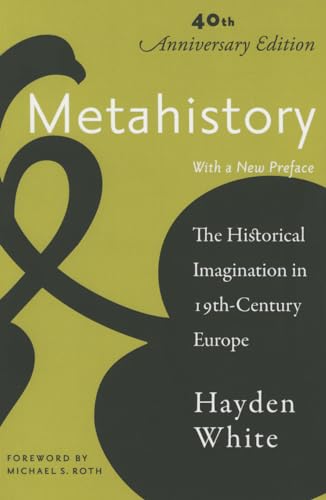
"Metahistory: The Historical Imagination in Nineteenth-Century Europe" by Hayden White is a seminal work that critically examines the narrative structures underlying nineteenth-century historical writing. Published in 1973, White's analysis delves into the literary techniques employed by prominent historians and philosophers of history, such as Michelet, Ranke, Tocqueville, Burckhardt, Marx, Hegel, Nietzsche, and Croce. Central to White's thesis is the concept of the "metahistorical element," which posits that beyond the factual content of historical texts lies a deeper, poetic, and linguistic dimension that shapes our understanding of history.
White challenges the conventional perception of history as a straightforward recounting of facts, arguing instead for the recognition of narrative and ideology as intrinsic to historical discourse. He suggests that the distinction between history and fiction on the basis of factual accuracy is less clear-cut than traditionally thought. This perspective not only questions the objectivity of historical writing but also highlights the role of narrative techniques in the construction of historical reality.
The book's fortieth-anniversary edition, featuring a new preface by White and a foreword by Michael S. Roth, underscores its enduring relevance across disciplines, including history, literary theory, and philosophy. While "Metahistory" is celebrated for its insightful critique and has been described as a modern classic, it is not without its challenges for readers. The use of specialized literary and linguistic terminology can make the text demanding, and some familiarity with the historical figures discussed is beneficial for a fuller understanding of White's arguments.
Despite these complexities, "Metahistory" remains a pivotal work for those interested in the methodologies of historical writing and the philosophical underpinnings of historiography. It offers a compelling examination of how history is crafted and the implicit narratives that shape our perception of the past, making it a valuable read for scholars and students of history, as well as those intrigued by the intersection of history, narrative, and philosophy.

